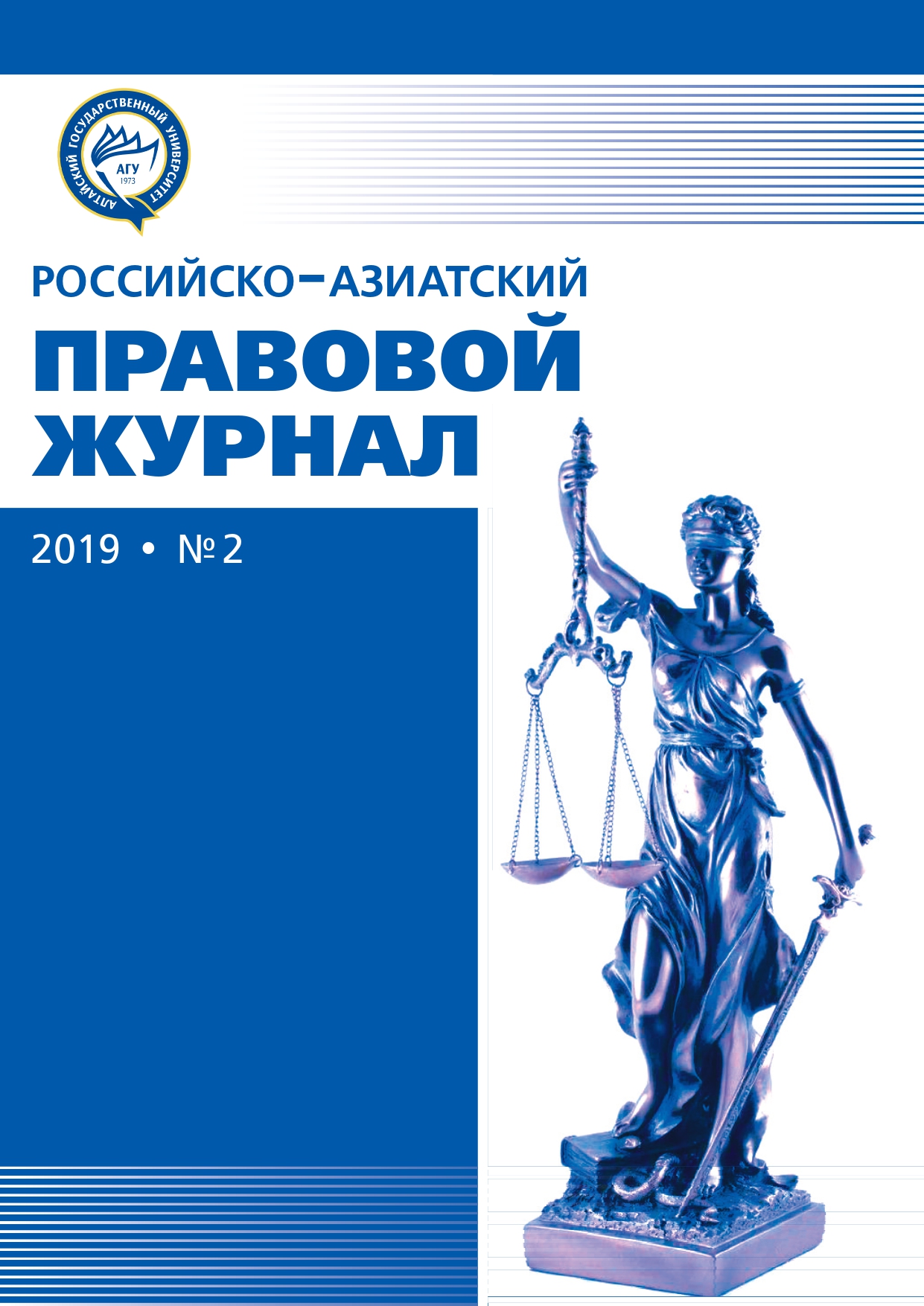DIRECTIONS OF INTERNATIONAL COOPERATION OF RUSSIA WITH FOREIGN COUNTRIES IN THE FIELD OF SCIENCE, INNOVATION AND EDUCATION
УДК 341.2 ББК 67.91
Abstract
The main vectors of Russia’s international partnership with certain foreign countries in the humanitariansphere are Considered. The priorities of modern international cooperation between Russia and foreigncountries are shown on the example of scientific, educational and innovative relations.
Downloads
References
до 2024 г. : Указ Президента РФ от 07.05.2018 №204 // СЗ РФ. 2018. №20. Ст. 2817.
О стратегии научно-технического развития Российской Федерации : Указ Президента РФ
от 01.12.2016 г. №642 // СЗ РФ. 2016. №49. Ст. 6887.
Действующее международное право. М., 1996. Т. 1. С. 65–73.
Ануфриева Л.П. Принципы и правовые формы сотрудничества в области науки, техники и инноваций между Россией и странами ЕС // СПС КонсультантПлюс.
Балякин А.А. и др. Позиционирование международного научно-технического сотрудничества в правовых документах стран-участников научной глобализации // Вестник РУДН. Серия Социология. 2018. Т. 18, №4. С. 651–667.
Руденко В.Н. Ассоциация научно-технического сотрудничества России и Китая: предпосылки
создания, статус, цели и задачи // СПС КонсультантПлюс.
Соколова Н.А. Международное сотрудничество в сфере науки, инноваций и образования Российской Федерации со странами Европейского Союза // Международное право. 2018. №12 (145). С. 48–56.
Об утверждении Концепции внешней политики Российской Федерации : Указ Президента РФ от 30.11. 2016 №640 // СЗ РФ. 2016. №49. Ст. 6886.
Russian-Asian Law Journal is a golden publisher, as we allow self-archiving, but most importantly we are fully transparent about your rights.
Authors may present and discuss their findings ahead of publication: at scientific conferences, on preprint servers, in public databases, and in blogs, wikis, tweets, and other informal communication channels.
Russian-Asian Law Journal allows authors to deposit manuscripts (currently under review or those for intended submission) in non-commercial, pre-print servers such as ArXiv.
Authors who publish with this journal agree to the following terms:
- Authors retain copyright and grant the journal right of first publication with the work simultaneously licensed under a Creative Commons Attribution License that allows others to share the work with an acknowledgement of the work's authorship and initial publication in this journal.
- Authors are able to enter into separate, additional contractual arrangements for the non-exclusive distribution of the journal's published version of the work (e.g., post it to an institutional repository or publish it in a book), with an acknowledgement of its initial publication in this journal.
- Authors are permitted and encouraged to post their work online (e.g., in institutional repositories or on their website) prior to and during the submission process, as it can lead to productive exchanges, as well as earlier and greater citation of published work (See The Effect of Open Access).








